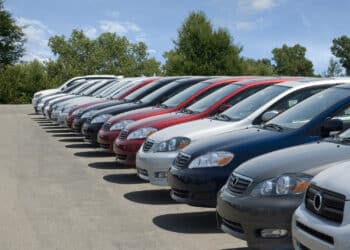The Internet of Value, and What It Means for ‘Auto Finance’
 First, there was the Internet of Information. Then, presumably and as yet not fully realized, the Internet of Things.
First, there was the Internet of Information. Then, presumably and as yet not fully realized, the Internet of Things.
Next comes the Internet of Value.
In a prescient presentation at the recent Bank Innovation 2015, Chris Larsen, the founder and CEO of Ripple Labs, a dynamic startup, described a future where value is transmitted and transferred with the same ease as data is pinged around global networks.
What does this have to do with auto finance? Consider this scenario:
You are driving down a highway, in a rush to get to your kid’s baseball game. You’re in the left, “fast” lane, pushing your speed as fast as you can. Yet, in front of you, is a slowpoke, barely touching the published speed limit, let alone the unpublished one. You bright the driver in front of you, yet he doesn’t scoot over.
What do you do?
Well, in the Internet of Value, you immediately pass him 1/100th of a penny to change lanes. He does, and you are on time to the game.
This certainly expands the definition of “auto finance.” According to Larsen, one of digital banking’s true old timers, the Internet of Value’s ubiquitous, seamless, comprehensive, and secure method of transferring value allows for the distribution of value in all sorts of novel ways.
Of course, Larsen and Ripple are looking to build the plumbing — the “rails” in Silicon Valley-speak — for the Internet of Value. It is a remarkably bold play. Ripple, which is often mistaken as a “bitcoin company,” has built what Larsen calls a “distributed ledger.” The distributed ledger allows for seamless and speedy “settling up” between financial institutions. There is no need to use the antiquated rails of existing payments infrastructure, such as ACH. Rather, the distributed ledger, as in the bitcoin blockchain, gives the FIs “non-human settlement” at the very root of institution-to-institution value transfer. Larsen even implied that the Federal Reserve would be better off using a distributed ledger (presumably Ripple’s) than its own settlement system for interbank transactions.
Larsen said Ripple already has four clients for its distributed ledger, including CBW Bank, the revolutionary Weir, Kan. institution. Whether it scores the Fed as a client — well, that’s another matter entirely. But what is clear is that the Internet of Value could lead to changes in the way we think about “auto finance.” Want to drive?
















Great comments, gentlemen. Thanks for your insights!